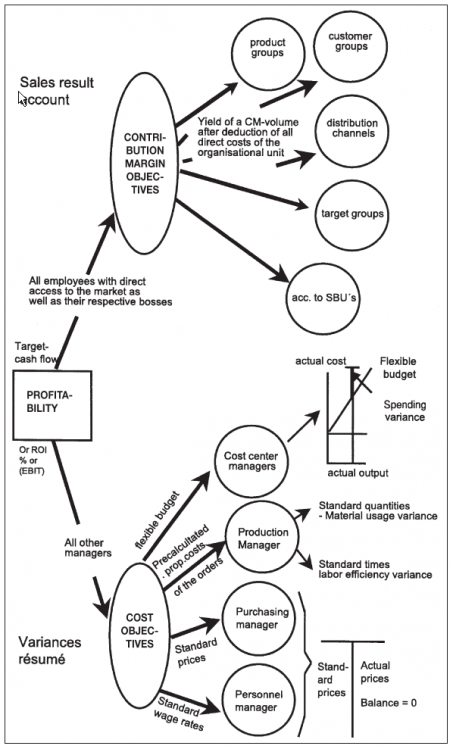Objective / Target
From ControllingWiki
IGC-DEFINITION
Objective/Target / Ziel
An objective is a desired future state, which should be precisely defined in terms of content, time frame and scope. One can also regard an objective as a result to be achieved. In the English-speaking world – the term target is often used to define a specific figure or ratio to be achieved (e.g. sales volume, percentage of sales, etc.) Thinking and working with objectives and targets is indispensable for effective controlling. Management by objectives and controlling interlock and grow together. Objectives are supposed to define what is to be achieved and accordingly need to be reviewed and reworked each year. In an objective-oriented corporate culture a person qualifies as a manager by planning his objectives precisely (without building in slack) and then achieving them too.
Objectives are typically clearly quantified and qualified. In the process of setting and agreeing upon objectives, individual targets for the employees responsible are derived step by step from corporate objectives like, for example, the Return on Investment. Depending on the employee’s area of responsibility, these can be contribution margin objectives, cost or output objectives. The combination of contribution margin and cost objectives generates consistent objective frameworks for achieving profitability and systems which are suitable for responsibility accounting as well as for decision accounting. In this way the desired behaviour of managers aimed at by the controlling tools can be implemented.
Management by (agreeing upon) objectives is superior to setting objectives because each employee is involved in the process of working out objectives, which promotes his own motivation and readiness to accept the objectives.
from: IGC-Controller-Wörterbuch, International Group of Controlling (Hrsg.)

 This is the
This is the 